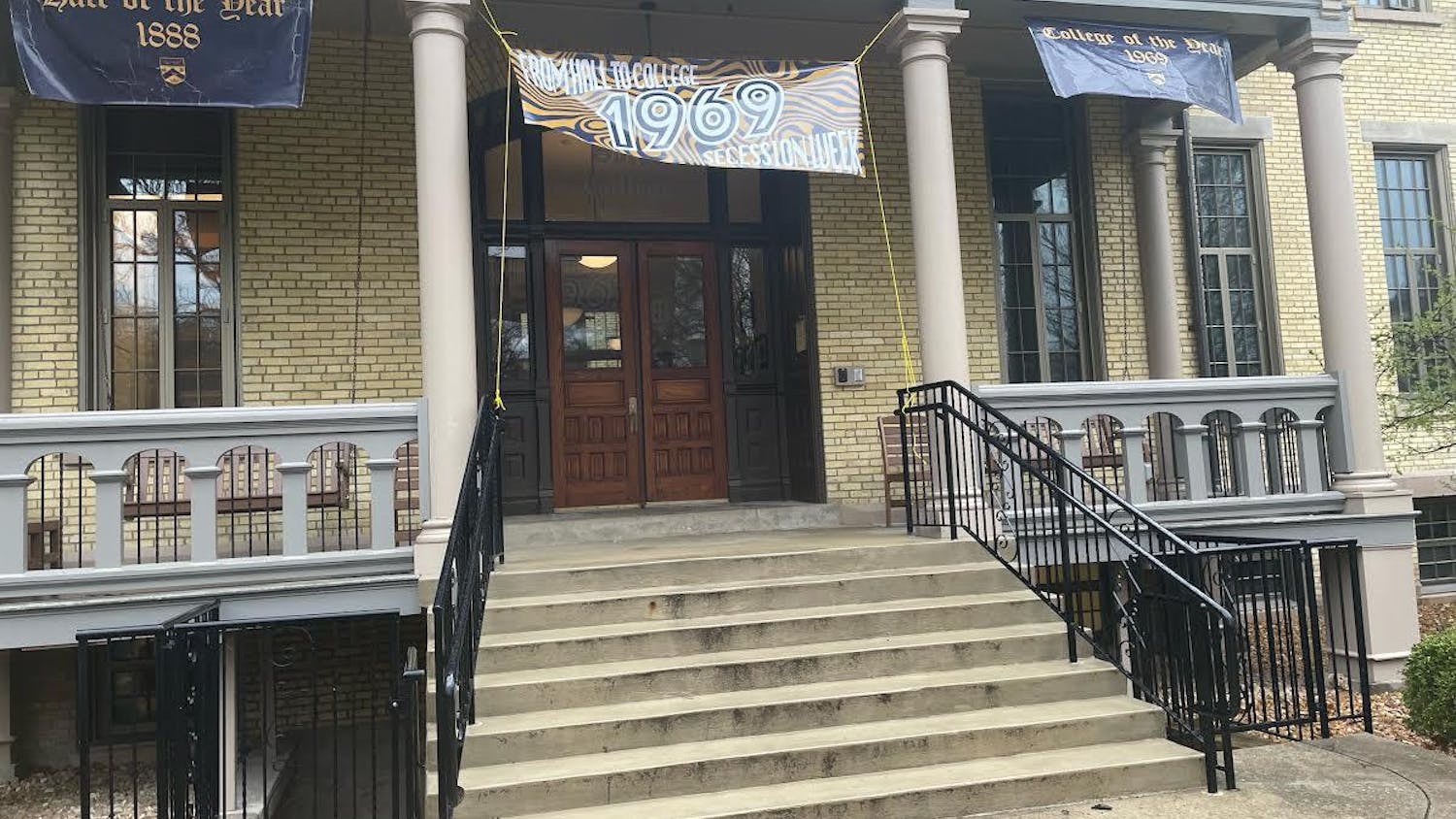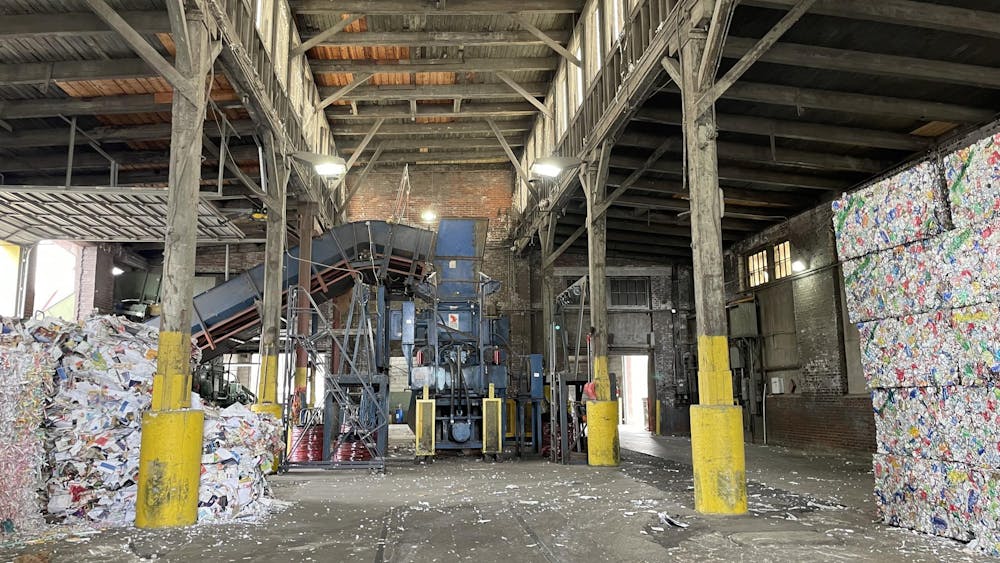Editor's Note: This is the sixth story in a series featuring Notre Dame and Saint Mary's graduates serving as members of Congress. This series, titled "Trading Golden Dome for Capitol Dome," will run on Fridays.

Although lawmakers allowed the federal government to reopen, debate continues on health care and on the meaning of the implementation of the Patient Protection and Affordable Care Act.
Rep. Mike Kelly (R-PA-3), who obtained his B.A. in sociology from Notre Dame in 1970, wrote in support of an alternative plan proposed by House Republicans - the American Health Care Reform Act, or H.R. 3121 - in the Sept. 29 issue of the Erie Times-News.
This plan will do what he believes President Obama's health care law fails to accomplish, Kelly wrote in the opinion piece.
"This common sense alternative to the ACA ... [makes] American medical care - already the most sought-after in the world - more affordable and more accessible to the most vulnerable among us in a way that does not damage our economy or disrupt anyone's existing coverage," Kelly said in the opinion piece. "[O]ur plan operates on the principle that free market competition and maximized individual choice are not just worthy goals but downright indispensible components of patient-centered health-care reform."
Kelly opposed the plan from its introduction to the national political discussion as a mandate from the Department of Health and Human Services issued on Jan. 20, 2012, and the announcement Aug. 1, 2012, that the plan would be implemented thereafter.
Though criticized for his comments Kelly said he felt he needed to stand up to what he called an infringement on Americans' First Amendment rights.

"I was criticized because they were saying, 'Oh, you're trying to take away women's health concerns from them,'" Kelly said. "I said, 'This has nothing to do with contraception and everything to do with contradiction.' In our First Amendment, we are guaranteed these rights are enshrined by the people that put this together, that we don't have to do [certain] things, but you're telling me, 'yes, you do.'"
Our Lady's family
Far from the only debate Kelly has entered during his time in the House of Representatives, his advocacy for the Republican alternative healthcare plan represents the most recent embodiment of the sense for service he discerned at Notre Dame.
"I think Notre Dame teaches you a sense of responsibility, that we all have to give back at some point," Kelly said. "Whether it's your church, in your schools or in your community, I think it's just who we are at Notre Dame, that we take our experiences at Notre Dame and take that into whoever we are after Notre Dame and build on that."
Kelly graduated from Notre Dame with a degree in sociology and a minor in philosophy and theology. Although he said he enjoyed discussing philosophical and theological issues with his classmates, Kelly said he never expected to enter politics after graduation.
"It was never my intention to go into politics," Kelly said. "If anybody had asked me back then and said, 'Oh, do you think you would ever run for office?' I would have said 'Oh my gosh, no.' At first I went there to play football. After getting hurt and seeing that your next play could be your last play, you start to grow up really fast.
"You learn very quickly that there is a process that you go through, and when things don't go the right way you say 'okay, fine, there's something else to do.' But politics, never."
Kelly said the influences of his family and the University's recruiters brought him to Notre Dame to play football.
"I'm Irish Catholic, and growing up, everybody in my family was all Notre Dame fans," he said. "I really thought I was going to go to Penn State. ... But, Terry Hanratty [Notre Dame class of 1968, former quarterback] was a year ahead of me at school, and he went to Notre Dame."
Though his time at Notre Dame started with football, Kelly said he remembers his time at the University for the introduction it gave him to 'the Notre Dame family.'
"When I first went to Notre Dame it was because of football, but once I was at Notre Dame it was because of Notre Dame. ... We're all family. It doesn't matter where you're from or what you've done before, once you get there you are a part of the Notre Dame family," Kelly said. "I was very disappointed that I got hurt and wasn't able to play, but I was never disappointed that I stayed at Notre Dame. I always thought that was the best decision I had ever made in my life."
Kelly said his connection to the campus grew during his time as an undergraduate student.
"Football was a huge part of [the beginning of my time there], but once you're there you start to get some places that are really near and dear to your heart," Kelly said. "I spent a lot of time at the Grotto. ... Even now when I go back, my first visit is always to the Grotto.
"There's just something about this campus. ... It's different from anyplace else. I've been to a lot of different places to visit, but no place had the attraction of Notre Dame."
The car dealership
After graduating, Kelly said he returned to work for his father's car dealership.
"I didn't really realize until my senior year [that my post-graduation plans were unusually established], but when everybody started to talk about applying for jobs and what they're going to do, they asked me, 'What are you going to do?'" Kelly said. "I said, 'I am going back home because my family has a business.' I had never really thought about that aspect of my life because I had always thought I would stay in athletics, but that evaporated.
"But it was just kind of natural for me, because I worked at the dealership since I was little. Whether it was washing cars, sweeping floors, helping mechanics get parts, I was always part of it and it was just kind of expected. I was the oldest boy in the family, I had two younger brothers, but my dad just kind of assumed I would be there."
When his father looked to transition away from work at the dealership, Kelly said he sat down with his sons to talk about their interest in the dealership.
"There were three of us, and when it came time for my dad ... to transition, he brought the three of us into his office and said, 'Okay look: I have three sons, I have one business, and I kind of feel like Solomon - I want to know what you guys want to do,'" Kelly said. "[He said], 'I'm not giving anybody anything, because if I give it to you, you'll lose it. If you have to buy it, if you have to go to the bank, get the money and make payments on it, you'll watch it every day.'"
Kelly said he alone among his brothers wanted to take up management of the dealership.
"[My dad] started from nothing; he was a parts picker in a warehouse," Kelly said. "It was hard for him to finally make that decision to sell and walk away from his baby."
Protecting his father's legacy
The government's installation of a new chairman offthe General Motors board of directors threatened individual dealership owners, Kelly said. Because Kelly's dealership sold General Motors vehicles, he received a 39-page document and a request from the General Motors regional manager to sign over his business. Kelly said he refused because he needed to protect his father's legacy.
"We hired some people legally, spent about 60 thousand dollars in legal fees, but then during the arbitration I got a call ... and [was told I would get the dealership back]."
This experience highlighted for him what Kelly said was the government's overreach into the lives of Americans.
"I looked at [this experience] and said, you know, this is amazing. Here's Mike Kelly sitting in little Butler, ia., and this is a government that can come in and not because you're not running your business the right way, not because you haven't met all of the metrics that they've established, they can decide you're not going to be in business anymore.
"Why? That's not America."
A voice for a smaller federal government
After the Cash for Clunkers program almost put his dealership out of business, Kelly said he was driven to run for his seat in the third district.
As a representative, he said he has worked to free the people from a government that has grown too large.
"All of the things that I have talked about here have nothing do with a government, it has to do with people," Kelly said. "The government serves the people, the people do not serve the government, and there should never be a situation where the government has grown so big, so powerful and so arrogant that they turn their backs on the people that they are supposed to serve."
Kelly's education at Notre Dame and his small-business experience promptednhim to conclude that government intervention is not the best tool to enrich the lives of the American people.
"Look at the founding of the University," he said. "they were traveling, they get sick and stop in South Bend. ... they decided to build a Church, to build a school, to build a way of life for people - no government help. there is not one penny from the government that helped start Notre Dame.
"I look at these things in my life and think, 'What in the world is it that makes these people think that self-reliance is no longer the key?' It's reliance on the government that should change, but we have regulated the [rich] and vilified them."
Kelly said he strongly opposed what he calls the vilification of the people that contribute the most to the funding of our countr..
"Notre Dame would never attack the people that fund it," Kelly said. [Some] people do, they vilify people that are successful. ... really? Who is funding it all? The same people you have just criticized.
AThough he would rather see the government reinforce self-reliance among the American people, he said his own experiences gives him hope.
"After being on the ground for 65 years, I have had my nose bloodied a lot," Kelly said. I have had a lot of days where things went really well, but I've had more days where things went badly. The key was not getting knocked down, it was getting back up.
"There's always tomorrow. there's always the promise of a new day."
Contact Nicole Michels at
nmichels@nd.edu











